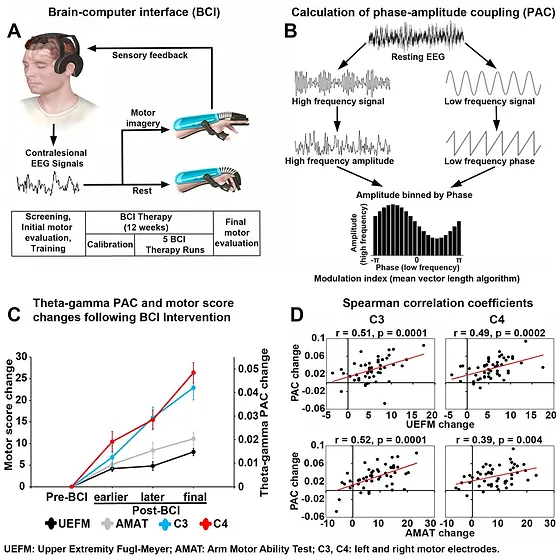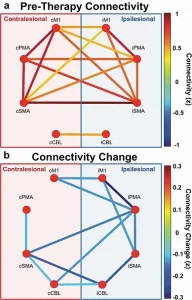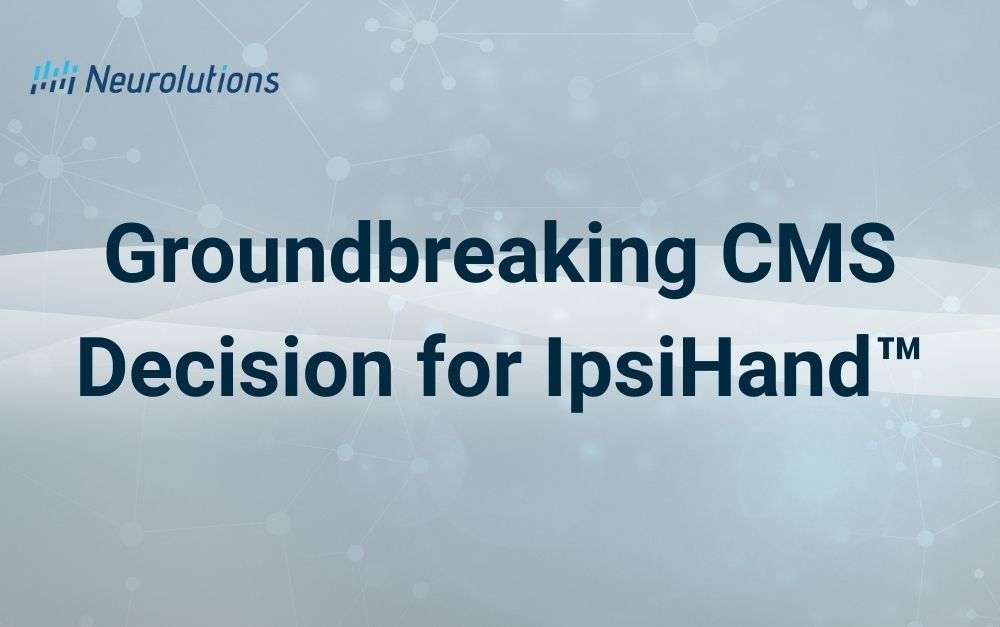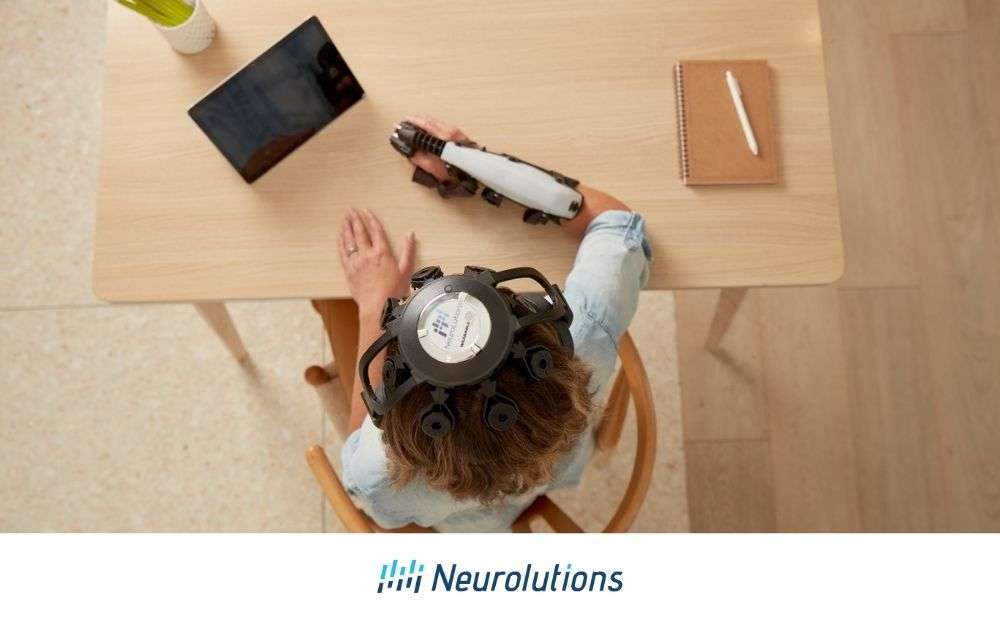Neurolutions CSO and Founder Dr. Eric Leuthardt has contributed to two recently published studies showing proof that brain-computer interface therapy with the IpsiHand benefits the brain’s motor networks and also motor recovery in chronic stroke patients with extended usage.
Brain-Computer Interface – The Future of Rehabilitation
Brain-computer interface rehabilitation using the IpsiHand is associated with the functional reorganization of the brain on the uninjured side and benefits post-stroke motor recovery. Findings from these studies support that “coupling” of specific brain wave frequencies related to motor learning and skill acquisition occurred with regular BCI sessions and was strongly correlated with motor recovery outcome measures.
BCI Research
There are two new studies that provide evidence that brain-computer interface therapy with the IpsiHand has a positive impact on the brain’s motor networks in chronic stroke patients as they recover motor function after extended use. This research is specifically focused on learning how brain-computer interfaces (or BCIs) can be used to advance stroke recovery through the use of rehabilitation using BCIs.
In the first paper, it is shown how, as patients recover motor function, the brain’s fundamental electrophysiology changes, in particular its phase-amplitude coupling. Read more about the motor network reorganization with the use of brain-computer interface.

The second study shows how the motor networks of the brain in chronic stroke patients have changed as a result of the extended period of time when they have been using the brain-computer interface. Read more about BCI mediated motor recovery in chronic stroke.





